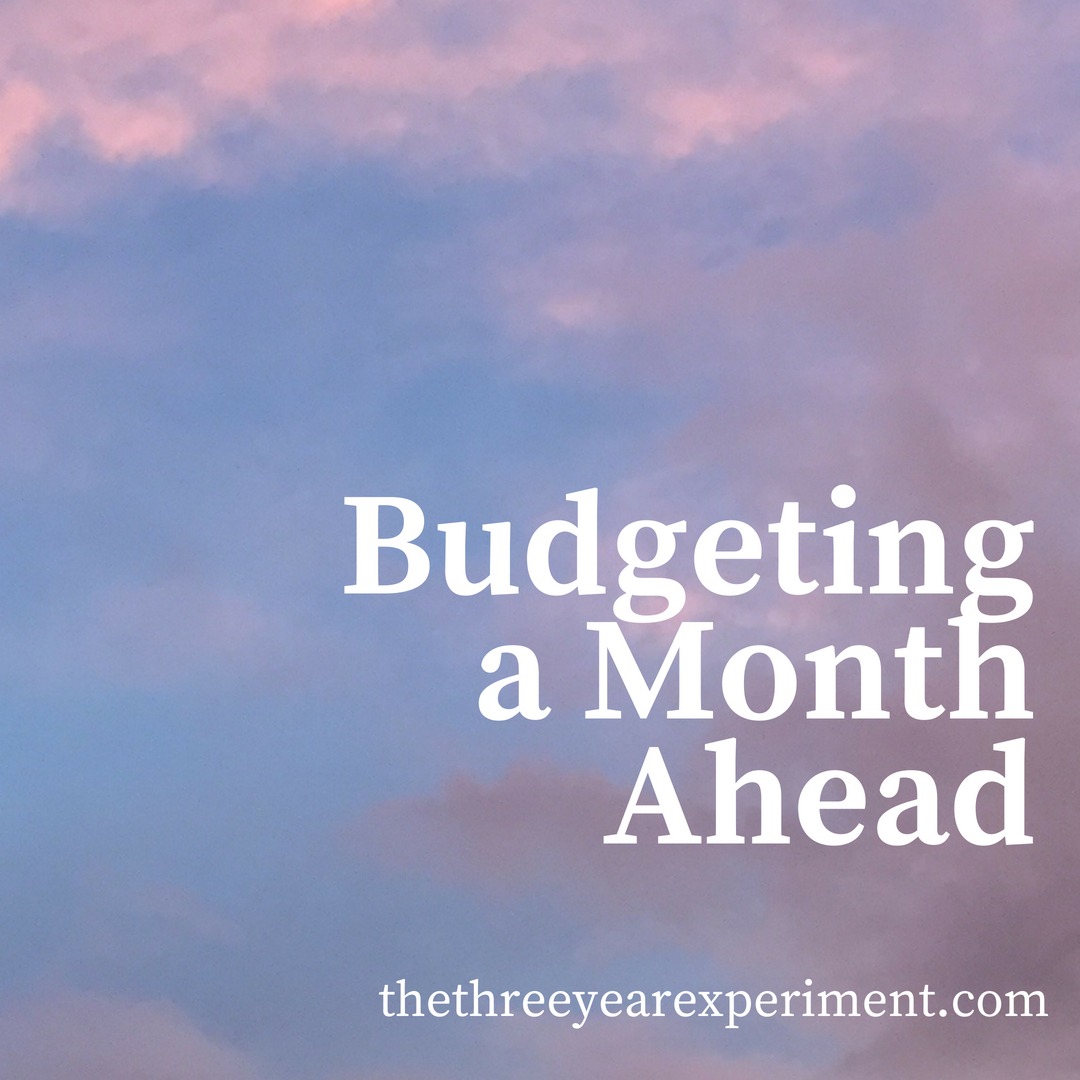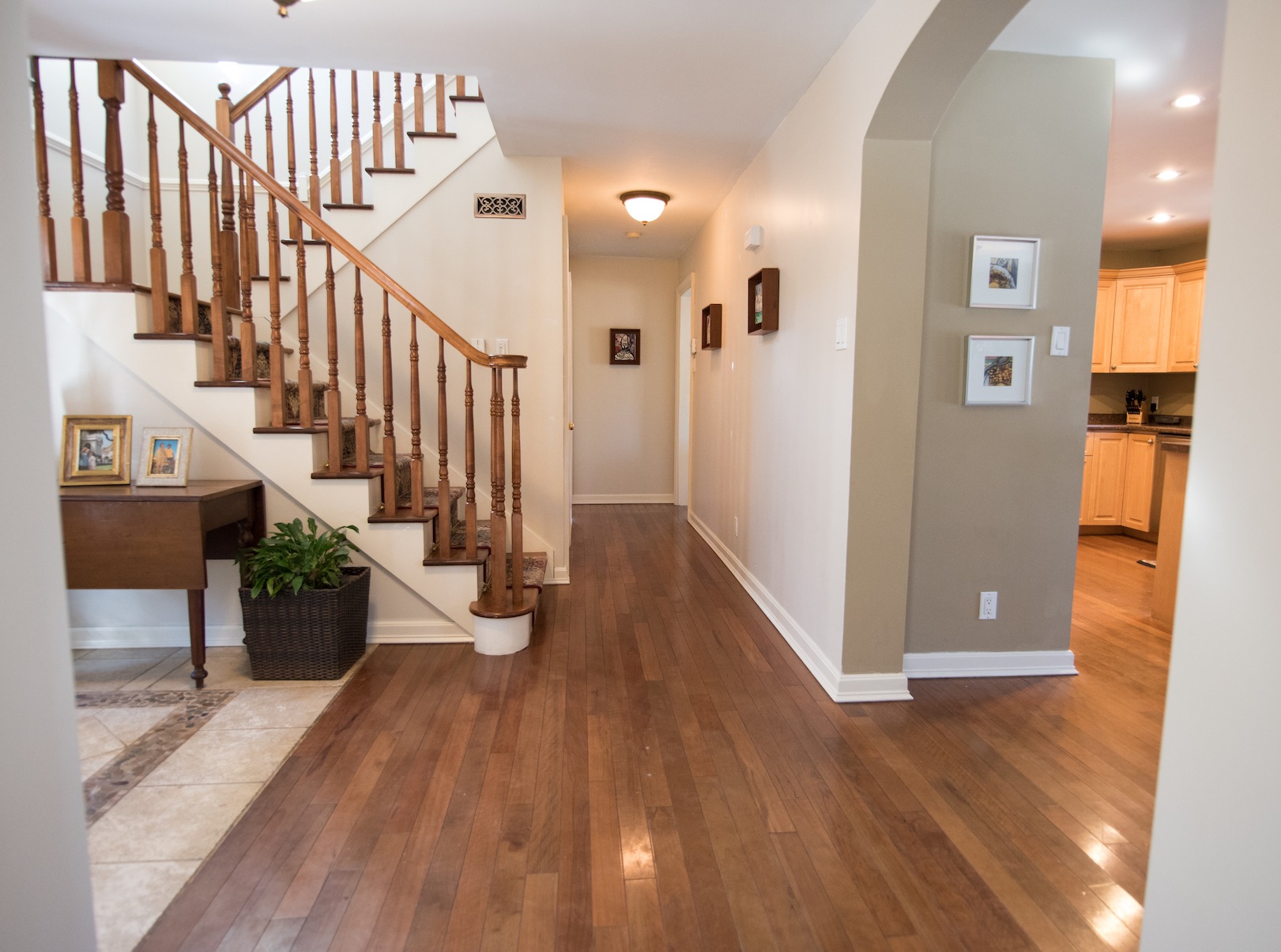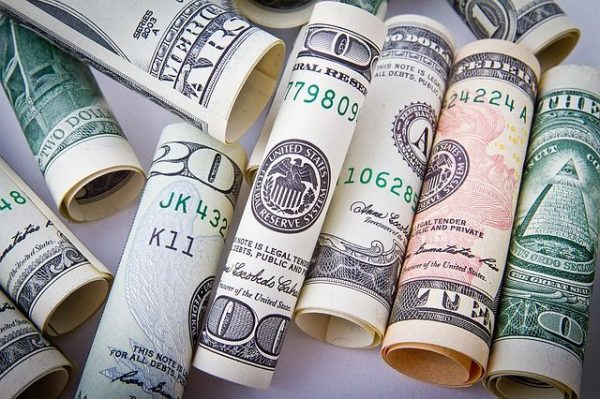I know there are many people who don’t budget, but for me, it’s been a lifesaver. I am a natural spender, not a saver, so putting artificial boundaries around my money is important. Over the years, I’ve trained myself not to touch some of it, to keep it off limits, and giving myself artificial boundaries around eating out and entertainment has helped us spend less over time.
One thing I’ve never been able to do (and I say “I” because Mr. ThreeYear has pretty bad money anxiety and doesn’t look at the budget) is get a month ahead in our budgeting.
We’ve been budgeting for ten years this month, and it’s the first month I’ve gotten a month ahead in the budget. Previously, I’d budget one paycheck at a time, so I wouldn’t fully find my budget categories at the beginning of the month (I have a habit of throwing any extra money we get into investment accounts). It worked, but I was never budgeting all at once. With budgeting one month ahead, you use this month’s income to fund next month. So you need to have a full month’s income saved, in addition to what you need to pay your bills for the current month.
Part of the reason I never got one month ahead was that I didn’t see the benefit. As long as our budget was working, why fix it? Sure, it was a little awkward to fund our essential expenses and then later fund our nonessential expenses (using our 50/50 budget) but it had worked for years, and we always had investing, saving, or debt payoff goals that seemed more important than getting a month ahead with our budget.

You Need a Budget (Really?)
Recently, though, I read Jesse Mecham’s book You Need a Budget (affiliate link). Jesse is the founder of the budgeting software company by the same name, and in his book, he explains his budgeting philosophy’s four rules, one of which is to get a month ahead with your budgeting. He calls it “Aging Your Money.” You should only budget using the money that you have in your bank accounts right now, according to Mecham. You want to get to the point where you’ve saved enough so that there’s enough money in your checking account to pay for this month’s and next month’s expenses.
Mecham explains the concept behind using the money you have now to budget versus budgeting potential future earnings. This was a lightbulb moment for me:
“Forecasting is when you look into the future and guess at your upcoming income and spending. This can be fun because we’re painting a picture of the life we want to live, or the person we want to be, without having to worry just yet about making those numbers work. It’s easy to throw $ 300 into your vacation fund and $ 500 into your grocery allowance when you’re talking about future money. The reverse approach is also a problem: You can swear you’ll only spend $50 a month on groceries, but that never happens in real life and you end up feeling bad just for buying your family’s essentials. The difference between forecasting and budgeting is a lot like the difference between dreaming and doing. It’s fun to forecast and dream of the life you want if you can someday get those numbers to work. But how about looking at the money you have right now and creating a spending plan based on what’s most important to you? That’s what YNAB is all about. When you view your money through this lens—prioritizing the money you have right now—the whole picture changes. Now you’re not just guessing and hoping—you’re being intentional with your dollars. You’re letting your priorities drive how you spend the money you have on hand. And you’re forgetting about any promise of future money.”
I was the queen of forecasting. When we used the budgeting software Mvelopes, I had our whole year’s budget mapped out. The problem with that was that it never worked. Things always cropped up that I wanted to prioritize, or I’d forget several budgeting categories, or we’d want to take trips I hadn’t planned for. When we’re forced to look at only the month in front of us, it makes all our spending decisions much more urgent and real.

But How to Get a Month Ahead?
There are various ways people use to save up an extra month’s salary:
- They can save up a little each month over time.
- They can use a windfall, like a tax refund.
- Some people earn extra money through an extra job and fund it that way.
Here’s what we did: when we sold our house in New Hampshire and bought our house in North Carolina, we had one month where we didn’t owe a mortgage payment (July). I took that money, and then coupled it with some money that we set aside from the sale of the house, and that gave us just shy of a month’s salary for Mr. ThreeYear. I guarded that money like a hawk during the month of July.

Every time I logged into our YNAB software, I saw the money sitting there. And with the crazy amount of money we spent in July, it was tempting to dip into it. But I waited. Then, on August 1st, I used that money to fund all of our budgeting categories for this month. I could do it all at once for the first time in ten years: mortgage, groceries, eating out, entertainment, college funding, electricity. I also kept a couple of hundred dollars aside in the “Stuff I Forgot to Budget For” category, which was prescient given we acquired a dog this month!
I tried to forecast periodic payments the best I could. I set aside $75 for home insurance (we don’t escrow), $50 for car insurance, $50 for car repairs, etc. I do that each month to make sure there’s enough earmarked when it’s time to pay the bills.
I’ve had to move some money around, like always. We didn’t need to spend all the $75 I earmarked for haircuts because I got two $5.99 Back-to-School coupons, but we have spent money on puppy food, treats, and a vet visit. We spent less than I budgeted on back-to-school supplies, so there was extra there as well.
What It’s Been Like
This month, as the income rolls in and I just watch it collecting in my “To Be Budgeted” pool, I feel really in control of our money. I didn’t realize how much getting ahead a month in the budget would help psychologically.
As I’m thinking about September’s budget, I’m thinking about how much we can realistically save each month. I’m much more motivated to keep our spending under a set amount so that we can save even more money than we were in New Hampshire, even though my income’s not as high.
There’s something about having a pool of money that you allocate at the beginning of the month. It is a crystal clear representation of exactly how much you have to spend AND save, and for me, it’s made spending decisions all the more painful, because I know that if I make a spending decision for X, then I’ll be sacrificing Y. Before, if I shuffled money around, the opportunity cost wasn’t as psychologically apparent to me. That’s exactly what this spender needs.

If you budget, I highly recommend making it a goal to get a month ahead in your budgeting. Plan to use this year’s tax refund. Save some Christmas money at the end of the year. Budget $100 per month until you get it saved up. Put all your extra $$$ in a fund. It took us ten years to get to this point. Of course I wish I’d made it a priority earlier, given how awesome and in control of the whole budgeting process I’ve felt thanks to being a month ahead. But truly, no matter how long it takes, it’s worth it.
What are your thoughts on budgeting? Do you do it? Do you just spend as little as possible (that will never be me!)? I’d love to hear your take.



Great post! Congrats on getting a month ahead. Lo e that your dogs name is Lucy – SO CUTE!
Thanks Jaime!!! Little ThreeYear named her. 🙂
I so WANT to be a budgeter, and the idea of being a month ahead is so intriguing to me, but it has just never worked. I guess I’m doing something similar though in just allowing some of the extra money we haven’t spent this year (thanks much higher savings rate!) and allowing it to just sit in my checking account for a while. I’m amazed at how much less stress I have about money as that buffer grows.
🙂 I want to be a consistent cleaner. I really, really do. I want to be someone who spends a set day each week vacuuming and wiping down the bathrooms and getting all the laundry done. Alas, it hasn’t happened in 39 years. So I just do my imperfect cleaning routine and let Mr. ThreeYear do the rest. I feel like that’s how your strategy is with having your money in the checking account. The budgeting thing just doesn’t work for you so you’re finding another way. Which is awesome!! Congrats on having more $$ in your checking account! I agree–margin, any margin in my life, financial or otherwise, just makes me breathe easier. Go Angela!
My problem it seems is:
Il ya toujours quelque damn chose ! How do you handle this/these?
There always is some damn thing 🙂 … I *try* to tell myself “no” a lot (not very good at that, not sure where it comes from), give myself a pot of money for the inevitable “out of left field expenses” that seem to crop up every month, and rob Peter to pay Paul. I take from one fund and put it in another. It’s imperfect but it works better than not budgeting at all.